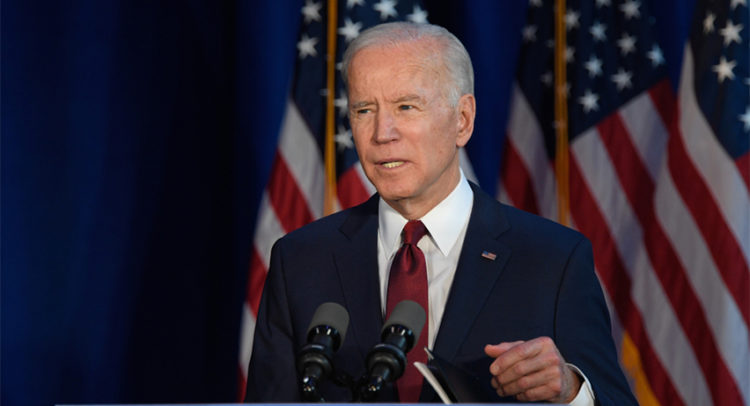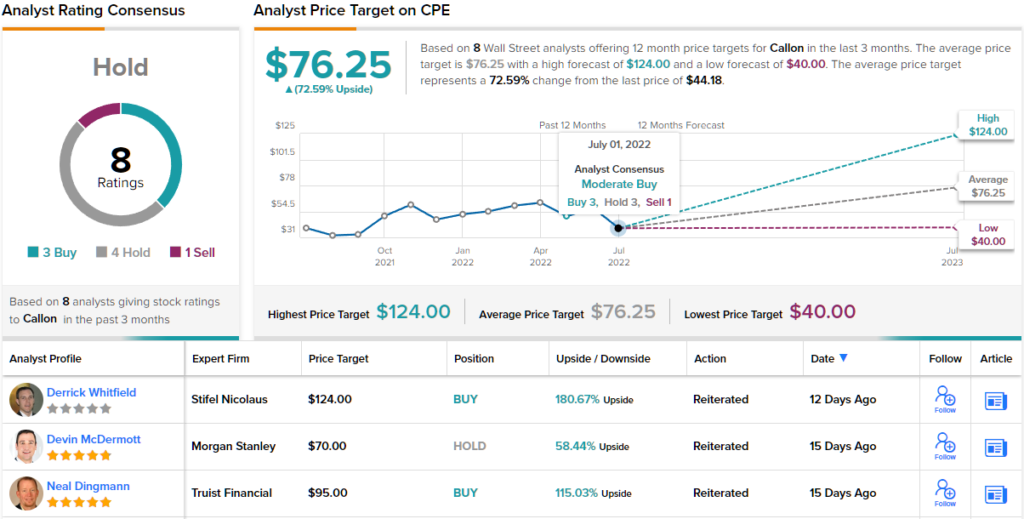Covering the stock scene for RBC Capital, US equity strategy head Lori Calvasina has pinpointed the upcoming US midterm elections as a major positive catalyst for stocks heading into the year’s end. That may sound counter intuitive – American politics being anything but positive these days – but Calvasina lays out a strong case for a market rally in Q4.
Stay Ahead of the Market:
- Discover outperforming stocks and invest smarter with Top Smart Score Stocks
- Filter, analyze, and streamline your search for investment opportunities using Tipranks' Stock Screener
“The midterms are a potential positive catalyst later this year. Not only do stocks tend to rally in the 4th quarter of midterm election years, Congress is expected to shift back to Republican control which is good news for stocks since the S&P 500 tends to post its strongest returns in years that have a Democratic President and split or Republican Congressional control,” Calvasina explained.
Against this backdrop, Calvasina’s colleagues among the RBC stock analysts have picked out two stocks they see as strong gainers in the months ahead – gainers to the tune of 70% or better. We’ve looked up these stocks, using TipRanks platform, to find out what makes them stand out.
Liberty Energy (LBRT)
The first RBC pick is Liberty Energy, an oilfield services company in the North American hydrocarbon sector. Oilfield services are the supporting services required by the producing firms to get oil and gas resources out of the ground. The producers find the oil and drill the wells; the services companies, like Liberty, provide the necessary support: engineering know-how in the water, sand, chemicals, piping, and pumping needed for effective fracking ops.
Liberty operates in some of the richest energy production regions of the US and Canada, including the Appalachian gas formations of Ohio, West Virginia, and Pennsylvania, and the oil and gas fields of the Gulf Coast, the Great Plains, and the Rocky Mountains. In all, Liberty has a presence in 12 US states and 3 Canadian provinces.
Oilfield support has notoriously high costs, and Liberty ran a consistent net loss until Q2 of this year. In its 2Q22 financial release, Liberty reported a diluted EPS of 55 cents. This compares favorably to the 3-cent loss from 1Q22, and even better to the 29-cent loss from 2Q21. The profit was derived from high revenues; the top line grew 62% year-over-year to reach $943 million, the highest level in the last two years.
These results, especially the EPS, came in ahead of expectations. EPS had been forecast at 17 cents; the 55 cents reported was more than triple that value. Shares in Liberty have also outperformed this year; where the overall markets are down near bear territory, LBRT has gained 45%.
The company’s outperformance is a key factor for RBC’s 5-star analyst Keith Mackey, who writes, “Liberty’s 2Q22 results were well ahead of our expectations on strong activity levels and pricing. We believe the investment case in Liberty has become increasingly compelling… In our view, Liberty should trade at a premium to most pressure pumping companies in our coverage group due to its size, strong balance sheet, and broad exposure to key North American basins.”
By ‘premium,’ Mackey means 73% upside potential. The analyst gives LBRT shares a $25 price target to back his Outperform (i.e. Buy) rating. (To watch Mackey’s track record, click here)
Wall Street appears to be in broad agreement with Mackey, as Liberty shares maintain a Strong Buy rating from the analyst consensus. There have been 8 recent analyst reviews, including 6 Buys and 2 Holds. The stock’s $22.38 average price target implies ~59% upside potential from the $14.11 trading price. (See Liberty stock forecast on TipRanks)
Callon Petroleum (CPE)
RBC is a Canadian investment bank, and Canada is a leader in the global energy market, so it’s not surprising that the firm’s analysts watch the North American energy companies closely. Callon Petroleum is one of the industry’s independent operators, with its base in Houston, Texas and its acquisition, exploration, and extraction activities in the Permian basin and Eagle Ford shale formations of its home state. The company’s assets include some 180,000 net acres spread across both regions.
Callon won’t release its second quarter numbers until tomorrow, but we can get a feel for the company’s performance by looking back at Q1. As we look back, we should bear in mind that last fall, Callon completed its acquisition of Primexx’s leasehold interests and oil, gas, and infrastructure assets in the Delaware basin. The transaction, conducted in both stock and cash, was valued at $788 million. At the same time, Callon divested itself on non-core acreage in the Eagle Ford play, for a total of $100 million.
With that in the background, we find that Callon reported total hydrocarbon revenues of $664.8 million in Q1, more than double the year-ago top line. This supported a solid adjusted EPS of $3.43 per diluted share – again, this was more than double the result from 1Q21. Callon’s results, at both the top and bottom lines, have been showing steady growth since the second quarter of 2020, reflecting both the return to business as the pandemic closures recede and the rising price of oil and natural gas on the open markets.
In an important point for investors to note, Callon does carry a heavy debt load, including $712 million, nearly half of the $1.6 billion limit on the company’s secured credit facility. The company generated a free cash flow in Q1 of $183.3 million, and has been openly working toward deleveraging its balance sheet.
According to Scott Hanold, another of RBC’s 5-star analysts, CPE has underperformed its peers significantly over the past year, and that opens up an opportunity for investors.
“CPE shares have significantly underperformed over the past year related to investor preferences on scale/shareholder returns but also following the Primexx acquisition. Performance from the acquisition has outperformed our expectations and de-leveraging continues to occur faster than expected. We believe this positions CPE as one of the most attractive SMid caps in our coverage,” Hanold explained.
In line with his bullish stance, Hanold rates CPE an Outperform (i.e. Buy), and his $75 price target implies room for ~70% upside potential in the next 12 months. (To watch Hanold’s track record, click here)
Overall, while RBC is tending to the bullish side, the Street seems more cautious. There are 8 recent analyst reviews on Callon, and they break down to 3 Buys, 4 Holds, and 1 Sell – for a Hold rating from the analyst consensus. The average upside remains high, however, as shares are selling for $44.18, and their $76.25 average target indicates ~73% upside potential. (See Callon stock forecast on TipRanks)
To find good ideas for energy stocks trading at attractive valuations, visit TipRanks’ Best Stocks to Buy, a newly launched tool that unites all of TipRanks’ equity insights.
Disclaimer: The opinions expressed in this article are solely those of the featured analysts. The content is intended to be used for informational purposes only. It is very important to do your own analysis before making any investment.



















